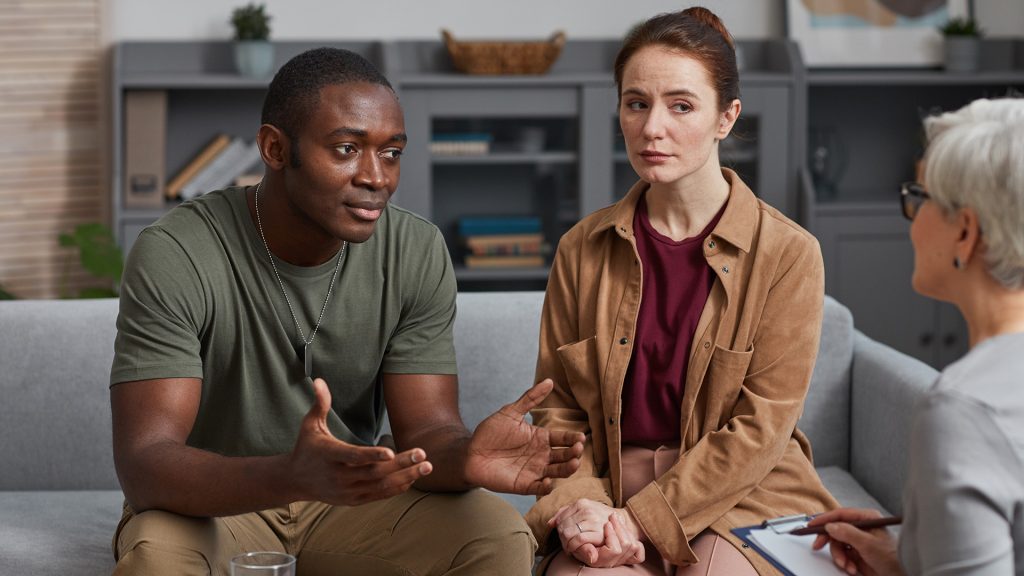

DOES MARRIAGE COUNSELING WORK?
Have you heard that marriage counseling does not work? Certainly it is not the counseling that works, but the individual partners willing to make changes. It can be a daunting process, and it takes incredible courage to face things about yourself that are difficult or even embarrassing.
What are each person’s needs behind the arguments, withdrawals, or even for those that want to give up? Identifying those needs are so important. The goal of marriage counseling is to feel like we have tried everything we could to meet those needs.
So we start with what each person wants to work on. This is more effective than trying to get your partner to change. What are the legitimate needs, how do you go about to meet them, and how do you identify and meet your partner’s needs?
It might look one way on the surface, like more needing more help at home, fair use of finances, more affection, more fun, or more understanding. But underneath these requests are needs to connect on a deeper level so that when you interact with your partner, you feel that your partner is for you and not against you.
The idea is to have each partner glued to the therapy process by the end of the first session. This may take more time than one session, but we would like to build and protect a trusting relationship between the therapist and each partner.
We start with a puzzle approach. Before putting the pieces together, we take a look at the top of the box to see what the picture looks like. What does a good relationship look like? The process starts with just one goal. We don’t want to give up the good for the sake of perfection, so we put one piece together at a time. If it is doable, and desirable, we can make it happen. The key is to keep focused on what each partner wants as part of the solution.
Keep it simple. The counselor just needs your goal(s) as they are. You would like to know how to meet the goal? The counselor has options. If you don’t know what your goals are, the counselor can explore what is bothering each person the most. The counselor can even provide sample goals, like on a menu.
You have heard that the counseling room is meant to be safe, and it is meant to be safe. But, it is risky, and it takes guts. It may feel like a dangerous place to be. What will my partner say about me? Am I actually good enough for my partner? Will they care about my needs?
We go for as little friction as possible, until there is enough trust in the process, like putting up the guardrails to build confidence bowling. We want it to be successful. Once there is enough trust, we can put down the guardrails and accomplish what is most important.
Counselors should not pressure you to go where you do not want to go. This is your life, and your relationship, and we don’t determine how you should live your life.
Hopefully at this point, you feel the counselor is on your side, and we can begin to build a bridge between each partner. We are looking for some positive energy, even in the first session.
Each session, the counselor should check in on how counseling is, or is not helping. We do not continue when it is ineffective. Changes need to be made instead of just hoping it will get better. We aim for achievement of the initial goal.
Here are some questions to consider for counseling:
- What are your best hopes for this process?
- What are your fears about this?
- What will be required of yourself?
- How motivated are you to make these changes?
- What do you do that helps your partner feel heard by you?
- What complaints does your partner have of you?
Looking for pro-relationship counselors? Let us know how we can help.